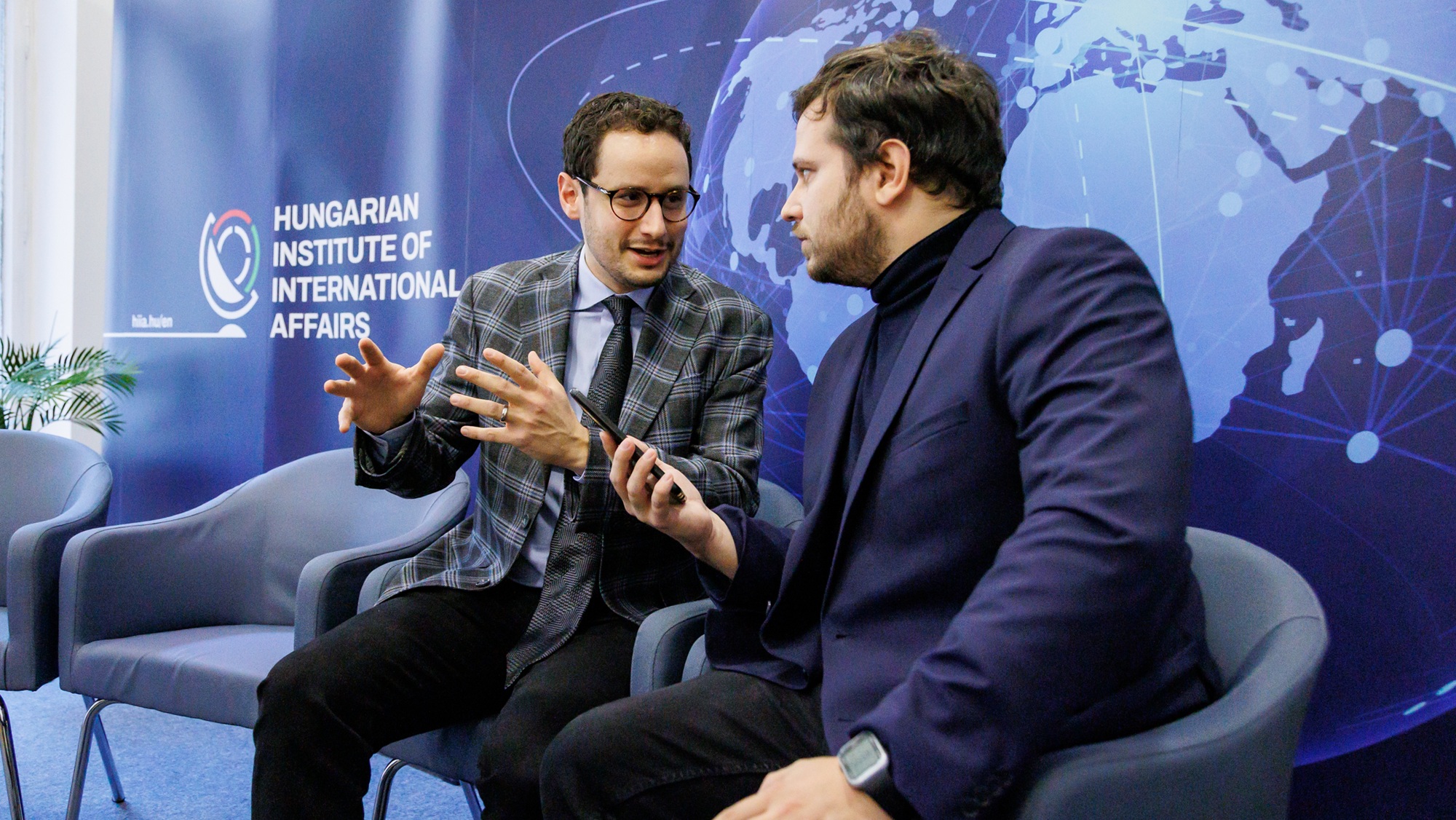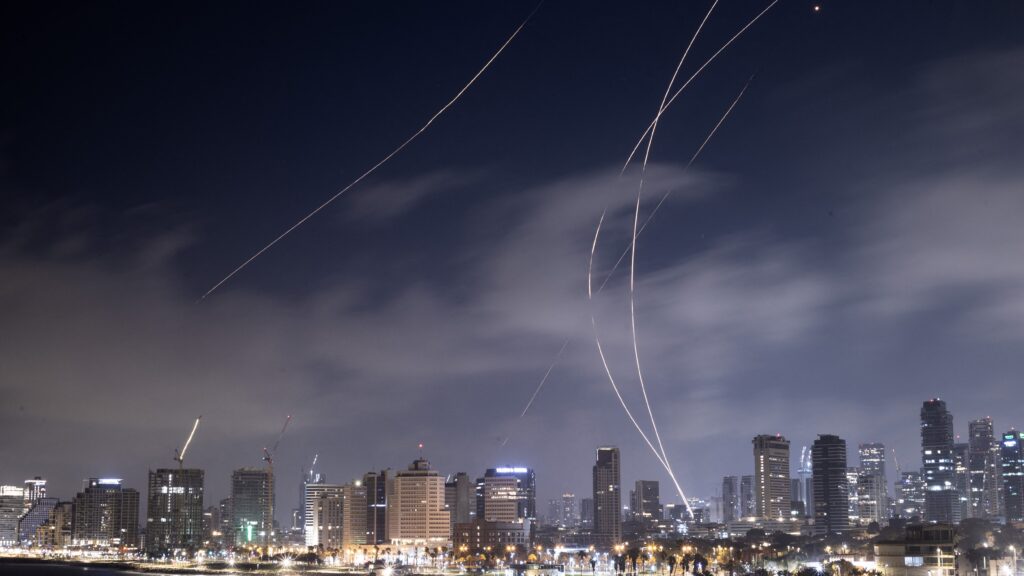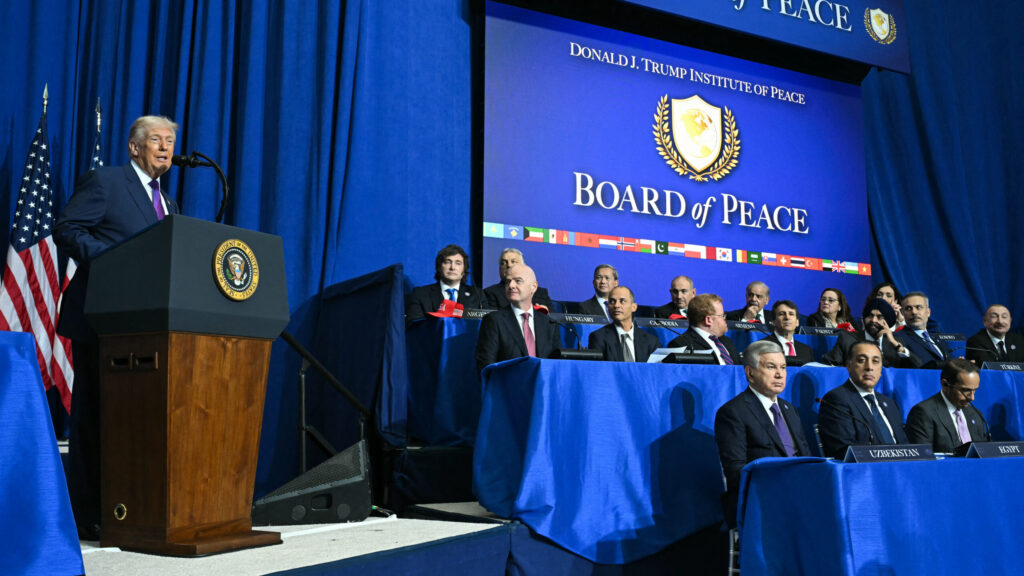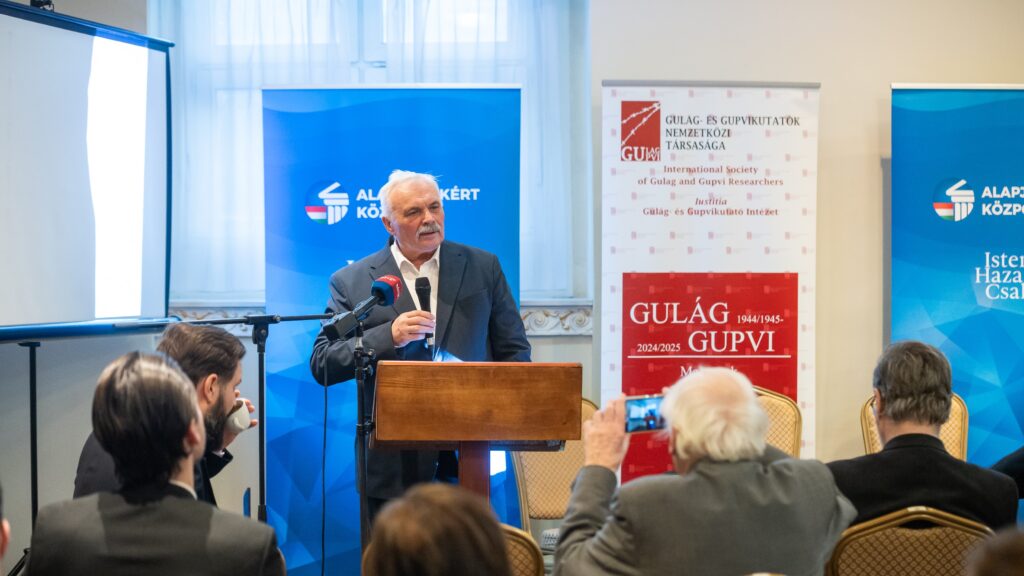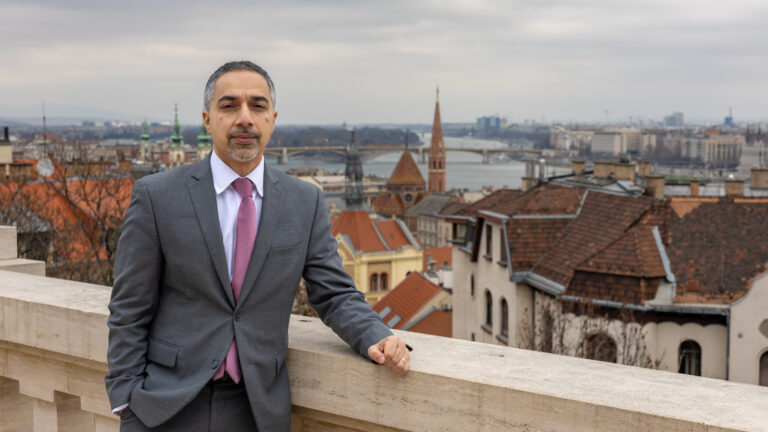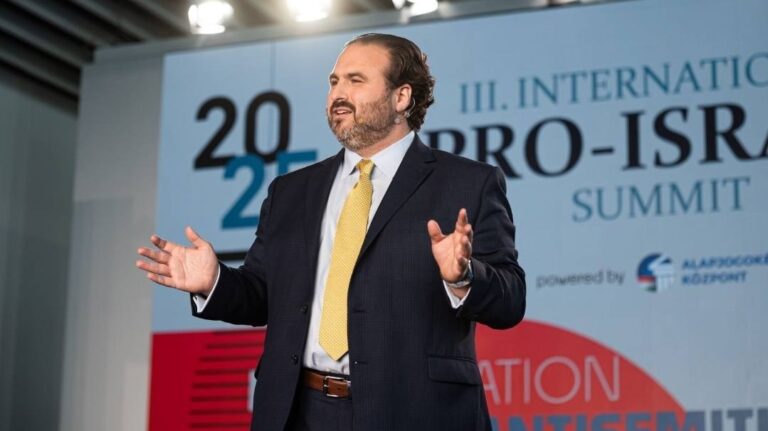Dr Zachary Paikin is Deputy Director of the Better Order Project and research fellow in the Grand Strategy Program at the Quincy Institute for Responsible Statecraft. He travelled to Budapest, Hungary to be one of the distinguished speakers at the inaugural EastSec Forum hosted by the Hungarian Institute of International Affairs, where he talked about the ongoing Russo–Ukrainian war at a panel. Afterwards, he was also gracious enough to sit down with us and give an exclusive interview to our site.
***
In your expert opinion, what is the most likely timeline for a peace agreement in the Russo–Ukrainian war? When is a peace agreement most likely going to be achieved, based on the current state of affairs?
I’m not making any predictions, but I think that we’ve got a window right now for a settlement that is likely to last until late spring, early summer, after which it might be the case that all parties will conclude that a diplomatic settlement is unlikely to take place, and that the military outcome is the more realistic outcome. And that’s obviously an outcome that I think we should all seek to avoid as much as possible.
We’ve got between now and then a series of decisions that might upset the balance necessary to obtain a diplomatic settlement, whether it’s the European Council deciding to appropriate Russian sovereign assets, the American deployment of intermediate-range missiles into Germany, or Russia’s continuing escalating tactics against Ukraine, which will encourage the Europeans only to recommit to Ukraine’s war effort. So, all of these things could lead to an escalatory spiral that makes diplomacy very difficult.
President Trump has called for a freezing of the front lines. President Zelenskyy has agreed publicly, but President Putin has not. What is his strategic goal in not doing that? Wouldn’t it be a popular decision for him domestically to freeze the front lines at least temporarily, if not permanently?
Russia launched this war in order to achieve certain political aims, and the primary form of leverage that it has in order to achieve those political aims is to continue the fighting on the battlefield, to make the progress territorially that they feel that they’re making right now. Which is coming, obviously, at enormous cost. But if they were just to freeze the front lines right now, the question is: can they frame this as a victory at home? And I think that they cannot do so unless they actually manage to achieve some of the political aims diplomatically.
Do you think the Russian public would be against it, and they would feel that now all the losses they had were in vain? Or do you think the Russian public would prefer a pause?
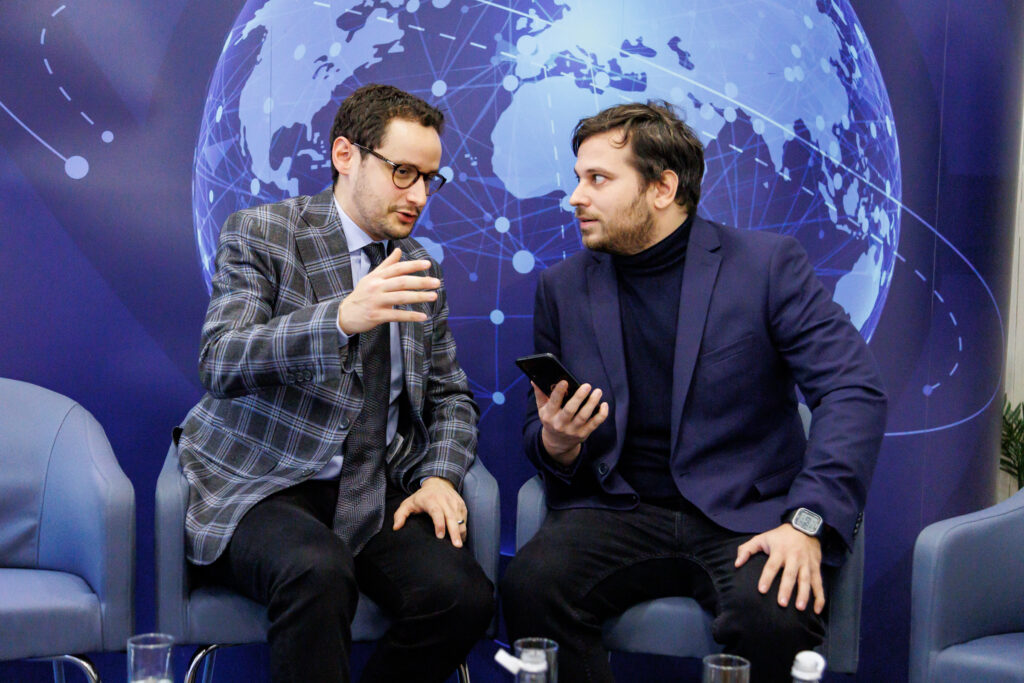
I think that the majority of the Russian public will be prepared to do what Putin says it is time to do. If Putin says now is the time for peace, I think that people will rally behind that. If he says now is the time to continue the war effort, I think people will rally behind that as well.
But irrespective of what the majority of Russians want, there are other political forces within Russia that are pushing the Kremlin one way or another on this. And there’s an increasingly emboldened group of pro-war voices within Russia that would be very upset if this war ended without Russia having realized its political aims, either on the battlefield—which I don’t think is possible—or at the negotiating table, so Putin’s going to have to manage them. And if they end up even more emboldened by the fact that they believe that Russia’s war aims were not met, that could be a major headache for the Kremlin right now. So he’s got to manage that. He’s starting to actually push back on them to some extent right now to repress them a little bit because he realizes that they are an important force that’s complicating his decision-making here. Thus Putin, as has been the case throughout his more than 20 years in the Kremlin, is going to have to manage competing political factions within Russia without embracing any one of them entirely.
Could he get at least some territory through negotiations right now if the fighting were to stop? Do you think that Russia could get some territory annexed officially, or is it something that’s off the table at this point?
Well, in terms of an annexation officially, no. I mean, Ukraine is never going to recognize Russia’s annexation.
What about after some American pressure? Or do you think that President Trump would not put that pressure on Ukraine?
No, no, I don’t think that’s possible. I don’t think that any Ukrainian president can make that compromise. I think that both sides are just going to have to acknowledge that they are going to have to agree to disagree on the question of who is the sovereign legal actor in these occupied territories. Russia can believe that they are the rightful actor. Ukraine can believe that they’re the rightful actor. But this is going to have to be deferred to future negotiations.
Why not hold referendums in those regions?
That may be what will happen eventually, but the issue is, you have to create the conditions for those referenda to take place under the appropriate international conditions. There needs to be security there first. You need to give people the right to return. It is entirely possible that at some point something like that will happen. And of course, it’s not without precedent. We saw similar things take place after World War I, throughout Europe, on the question of national self-determination and which groups wanted to belong to which sovereign states.
So, I would not rule out something like that in the future—but that’s not something that needs to be addressed right now. This war is primarily about security and not about territory. So what we need right now is to agree on the things that we can agree on, and that is the broad outline for a settlement on the security issues that matter, a framework agreement, if you will, which can lay the groundwork for agreeing to a ceasefire. And then the question of territory, the question of strategic stability and arms control, all these issues are going to take a lot more time to resolve. You know, these are resolutions that will need to take place on several negotiating tracks over the course of time. But these are not things that can be resolved now.
Because this war is primarily about security, if both sides, Russia and Ukraine, can get what they need on the security front, I think they’ll be more amenable to being flexible on the issue of territory, and on issues like Russian language rights and the Russian Orthodox Church in Ukraine. So, security needs to be front and centre in the efforts to bring this conflict to a close within a reasonable time frame.
What role can Hungary play in this negotiation process? There’s already been a proposed Peace Summit in Budapest. Do you think that it is an important asset to both sides that there’s a country in the European Union that has not cut ties with Russia completely?
I applaud Hungary’s efforts to pursue peace and to offer its good offices here in Budapest, or at least to serve as a venue for American–Russian dialogue.
Beyond that, I think what’s key here is that this war is about the future of Europe’s security order writ large, right? Russia launched this war because it feels that it was deprived of a seat at the top decision-making table in Europe’s post-Cold War security architecture. And so any conference that takes place here in Budapest needs to be not just about bringing the war in Ukraine to an end, but about envisaging the future of Europe’s security order at large. And that’s how I would encourage authorities here in Budapest and Prime Minister Orbán to think about this, and how to sell it to President Trump.
Trump can be very attracted to big, glitzy ideas. He’s got so many things going on at the same time. He’s always flooding the zone. He thinks that this is beneficial to American strategy and statecraft because it forces other actors to always be on their back foot. So if you want to get his attention, you need to do something big and shiny and glitzy. So promise not just to bring this war to an end. Promise that Budapest can serve as a venue for talking about the future of European security at large. You know, let’s have a conference here to reaffirm the Helsinki principles. Let’s have a conference here to establish a ‘coalition of the willing’ between the US and Russia to talk about the future of Europe’s security order. And, of course, the Europeans will be welcome to join in those discussions as a next step. This war is about big things and complex things. It’s about the future of the continental security order at large. So think big, think shiny, think blitzy.
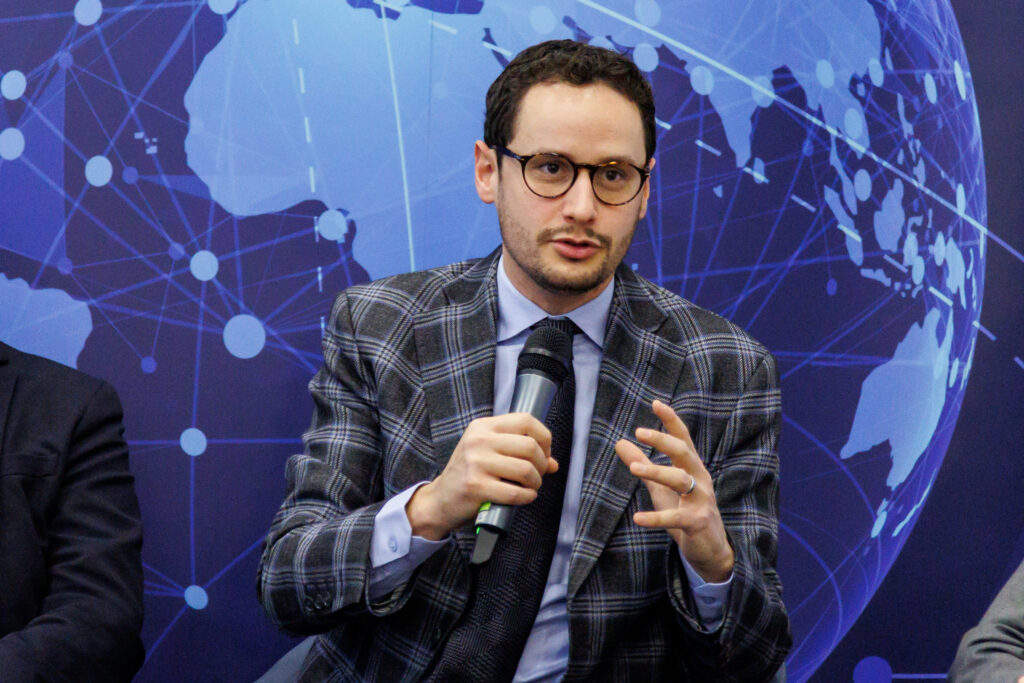
This is going to be an off-topic question: your institution is called the Quincy Institute for Responsible Statecraft, named after John Quincy Adams. He’s not typically regarded as one of the great Presidents of the United States. He got into office under very questionable circumstances, and only served one term. So why him? Why do you think your institute took on his name and not any of the other 44 presidents who have served?
Well, because John Quincy Adams famously said that ‘America goes not abroad in search of monsters to destroy’. At the Quincy Institute, we favour a foreign policy based more on diplomacy, on restraint, and on ensuring that peace is the norm and war the exception—not on identifying threats in every corner of the globe. Rather, we aim to adopt a strategy that serves the interests of the American people, and that includes American involvement in the world—economic involvement and, of course, security involvement as well—but not one that commits the country to endless wars in an attempt to transform other societies according to unrealistic political aims.
He was also famously the primary author of the Monroe Doctrine as Secretary of State. So maybe that’s also one of the reasons why you chose him as the namesake for your institution.
You’ll have to talk to the founders of the Quincy Institute about the other reasons why they settled on his name. In my case, I’m a Canadian, and he is also responsible for negotiating the Treaty of Ghent that brought the War of 1812 to an end, so I appreciate that as well.
Related articles:

